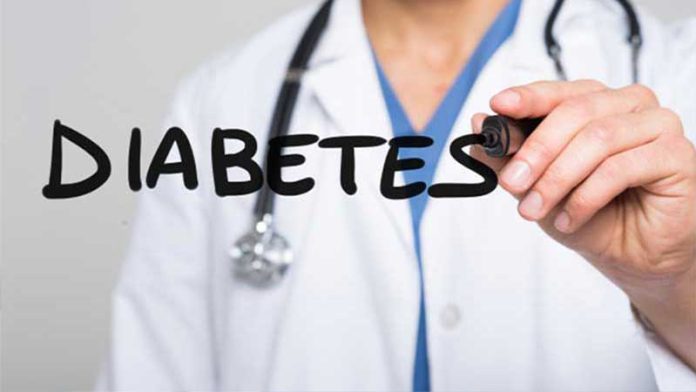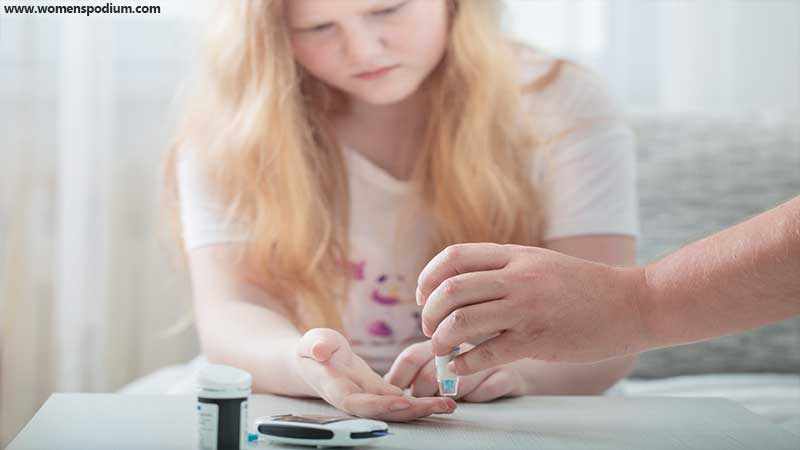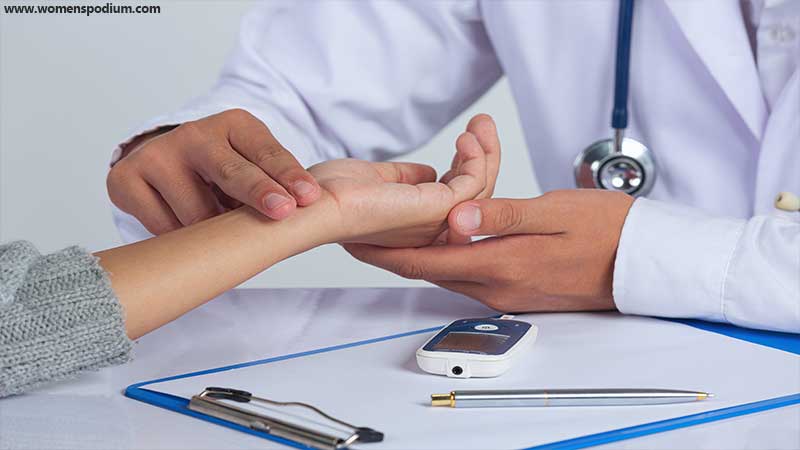
Diabetes is a long-term chronic illness and progressive condition that worsens over time. If you have diabetic conditions, your body either produces insufficient insulin or doesn’t use insulin properly. The body converts the amount of the food you consume into glucose (sugar), which is then released into the bloodstream. When insulin is inadequate, or your body cells stop reacting to insulin, it raises the blood glucose levels in the body, eventually leading to major health issues like kidney disease, eyesight loss, physical disabilities, and heart disease. Making fundamental lifestyle changes, such as integrating a good exercise routine and changing your diet, may help you control the blood glucose levels at first, but may not be enough in the long term without proper medication.
Is Diabetes A Disability?

The answer to the question ‘is diabetes a disability’ is ‘Yes’. The Americans with Disabilities Act protects people with disabilities, including people with all forms of diabetes. This includes having access to jobs, public spaces, schools, and some advantages like Social Security and disability insurance.
- The majority of legislation protects diabetes as a handicap.
- Diabetes of either type 1 or type 2 is considered a disability.
- People with diabetes can pursue any career, sport, or life objective.
All forms of diabetes are recognized as qualifying disabilities by law. But having diabetes does not have to put a stop to life just because it is protected from discrimination! People with diabetes can play contact sports, fight fires, drive race cars, and generally do whatever is necessary to pursue their aspirations.
Can We Get Disability Benefits For Diabetes?
Sometimes. Diabetes patients may occasionally receive disability benefits, but not always.
Type 1 and type 2 diabetics may not always be eligible for Social Security disability benefits. To qualify for Supplemental Security Income (SSI) or Social Security Disability Insurance, one must have severe diabetes-related issues (SSDI). Each short-term disability or long-term disability plan sponsored by a health insurance company is unique. Read the policy and all terms and conditions carefully. The laws governing each state’s assistance programs can vary.
Diabetes At School

Diabetes must be taken care of 24/7. The Federal law offers students the right to receive the diabetes care they need to be safe and participate in school activities just like any other child. Managing their condition in school, participation in school-sponsored activities like field trips and extracurriculars, child care programs, or attending summer camp or other recreational activities, everything must be monitored. Safe at School campaign aims to ensure that children’s needs for diabetes management are satisfied so they can be healthy, safe, and able to take advantage of the same opportunities as their peers. Schools should equip the following:
- A trained and qualified staff who can monitor blood sugar levels, give insulin, and glucagon
- Certified staff members who can offer care, especially for diabetes, during all school events, including field excursions and extracurriculars.
- Allow capable students to self-manage their diabetes anywhere, at any time.
According to federal law, students with diabetes have the same rights as other kids to the medical treatment they require to stay safe and participate in classroom activities.
Diabetes At Workplace

Discrimination towards people with diabetes happens naturally in the workplace. Discover more about what defines employment discrimination, your legal rights, and what you can do to stop it.
Employees who must leave early due to a serious medical condition or provide for a family member with a severe illness are protected under the Family Medical Leave Act (FMLA). If diabetes necessitates hospitalization or doctor visits at least twice a year, it is considered a significant medical condition. Diabetes patients who are FMLA-eligible may take up to 12 weeks of compensated leave. Employers are required by law to permit this leave.
To end discrimination, the American Diabetes Association uses a four-step process: educate, negotiate, prosecute, and legislate. Informing your employer about your diabetes might be a beneficial strategy to satisfy your needs for diabetes care at work in the workplace.
Diabetes And Law Enforcement

Everyone, including those with diabetes, has the right to equal treatment in the criminal justice system and all other areas of life. Unfortunately, it doesn’t always work out like this. The American Diabetes Association is extremely concerned about the following circumstances.
- Law enforcement personnel mistake hypoglycemic episodes for intoxication or noncompliance, failing to recognize them. The delay in acknowledging the need for medical attention may result in the person being gravely hurt during the arrest or perhaps dying.
- Denying all diabetes care to those in short-term detention, such as those in jails or police stations, before being charged with a crime can lead to severe consequences such as diabetic ketoacidosis, which can appear within hours.
- Inadequate care is provided to those serving their sentences, leading to catastrophic problems like blindness, kidney damage, and limb loss.
The most effective method to deal with adversity is to stop it by educating law enforcement organizations. American Diabetes Advocates are working to inform local police and sheriff departments across the nation about the best ways to handle diabetic emergencies and how to treat those who suffer them while jailed.
People with diabetes frequently ask if they will be allowed to carry their diabetes supplies past airport security, into venues like theatres, stadiums, and courthouses, or to participate in private and public programs like camps and daycare. People with diabetes have the right to fully engage in society without compromising their medical safety or coming into contact with hostility due to misinformation, fears, and stereotypes regarding the disease.
Diabetes patients may be entitled to the following in public places:
- Syringes and insulin can be brought through security checks at airports and courthouses.
- Breaks for snacking, checking blood sugar, taking medication, or using the restroom.
- Assistance for young diabetics participating in camps, childcare centers, or other leisure activities.
Final Words
Federal law classifies diabetes as a disability and recognizes its complexity. There are rights and safeguards in place to guarantee that people with diabetes are not subjected to discrimination and are given the same chances as people without the disease. Federal law provides rights and protections applicable in public spaces, the workplace, educational institutions, and interactions with police enforcement.
Also Read: Exercise, yoga, and meditation all are proven techniques to heal our bodies and soul. Yoga for diabetes patients is doing wonders in controlling the sugar level.





